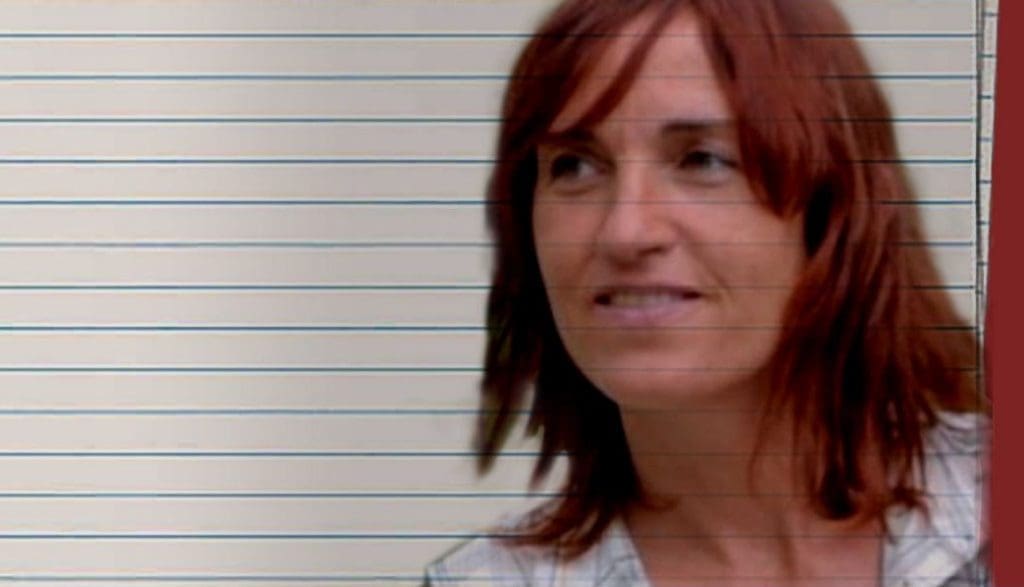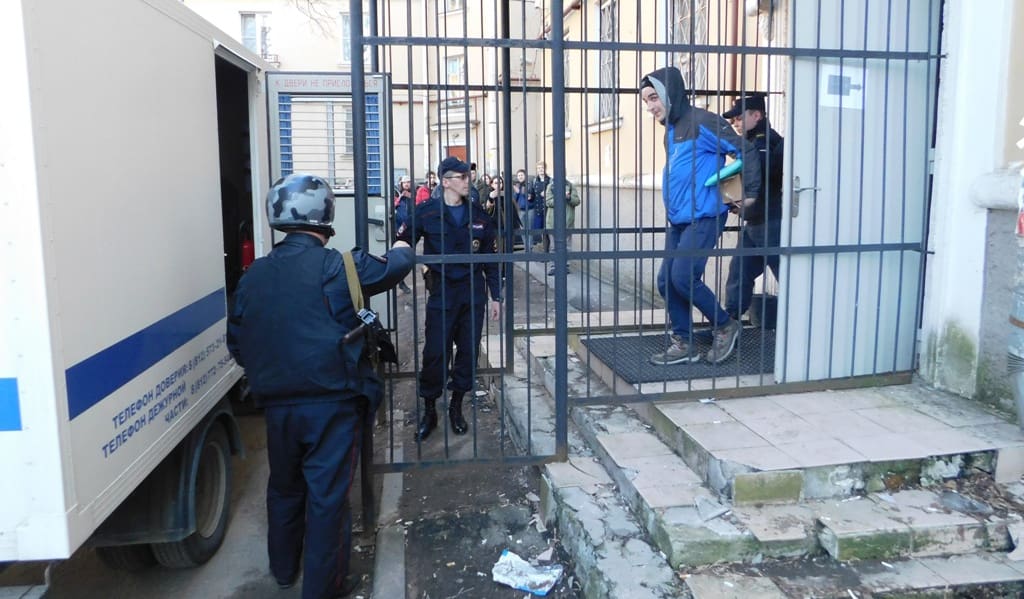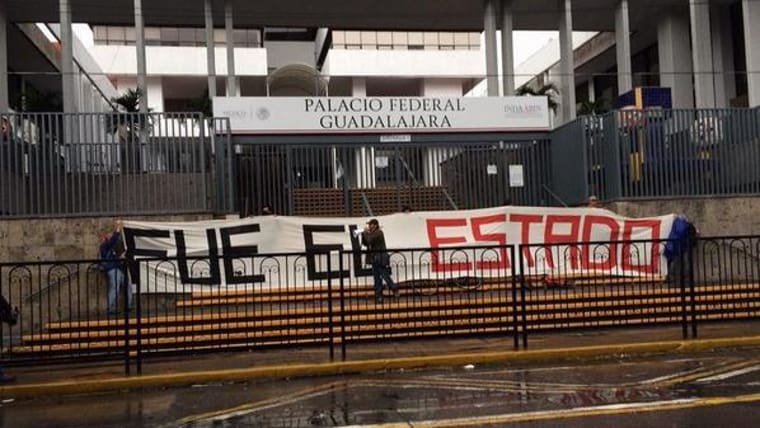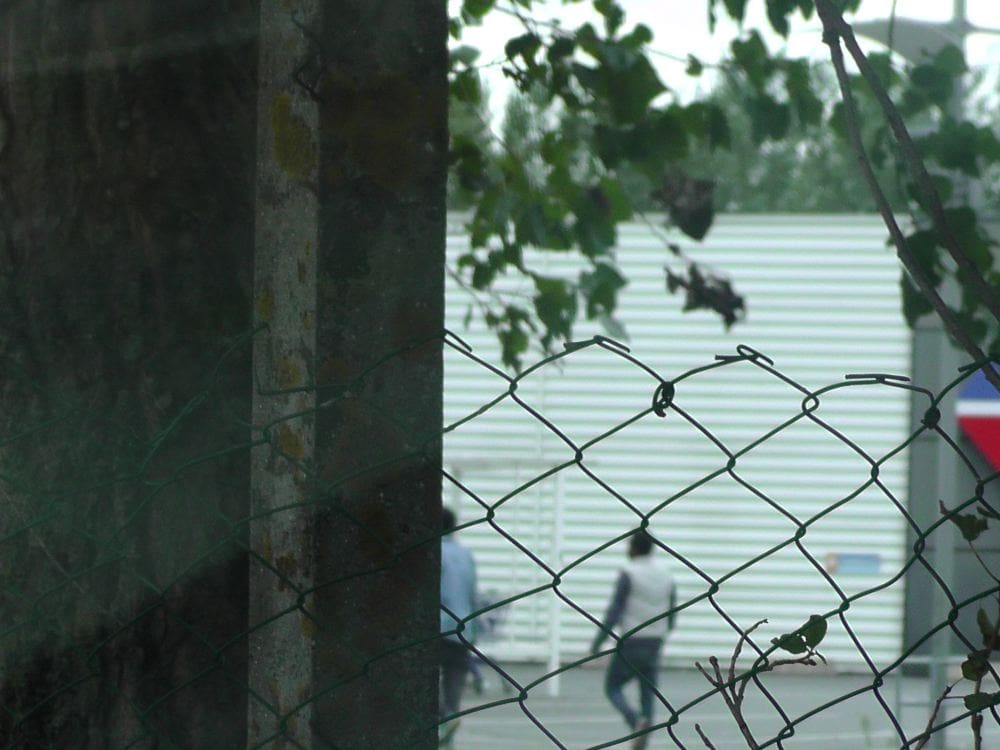AntiNote: the Swiss “magazine for autonomous journalism” ajour has recently established a correspondence with Basque liberation movement activist Nekane Txapartegi, who has been imprisoned nearly incommunicado in Switzerland for over a year and is facing extradition back into the hands of the Spanish authorities she fled a decade ago.
Nekane writes from prison in Spanish, and ajour has been presenting her letters in German for their local audience (there is a movement building rapidly around her and her cause); this is a translation from the German, and the second letter in a continuing series.
Free Nekane! Free all prisoners!
Prison Letters II: Spain’s Ethnic Justice System
by Nekane Txapartegi for ajour magazin
10 August 2017 (original post in German)
No, I have not confused terms, I mean ethnic and not ethical. Ethics cannot be found in Spain, either in its politics or in its justice system. New education reforms are being implemented right now which eliminate ethics courses and seek to enhance religious instruction.
With the following example, I would like to show how the Spanish justice system treats people differently depending on their ethnicity: it is about two individuals who were both born in Basque country. On the one hand there is Iñaki Urdangarin, born in Goierri, of Spanish identity. On the other there is me, Nekane Txapartegi Nieve, born in Tosaldea; I identify as a Basque woman. Currently both of us reside in Switzerland. As you know, I am being detained in Zurich awaiting possible extradition; Iñaki, in contrast, lives with his wife Cristina—the daughter of former Spanish King Juan Carlos I—on Lake Geneva. Both of us were handed guilty verdicts by the same Spanish court, but the outcomes in our cases couldn’t be more divergent.
I am defending myself, along with many other Basque people, against the colonization of Basque country and the repression of both the Spanish and French states. I was arrested for this reason, and tortured and raped in Spanish dungeons. In contrast, the red carpet to the House of Bourbon has been rolled out for Iñaki, who opted to be a friend to the political heirs of Franco. He married the daughter of the king—a king who, it bears mentioning, was crowned successor to Franco. My whole life I have fought the injustice that I, as a female Basque worker, eventually experienced firsthand in Spanish torture chambers. I fight for the freedom of my country, while Iñaki earned his lavish living speculating in gray financial markets and embezzling money through state contracts. Both of us were slapped with sentences by the Audiencia Nacional [for more on the origins and orientation of this exceptional high court, please see Nekane’s Prison Letter no. 1. —ed.], but not of equal measure by any stretch.
As a Basque woman, the process through which I was condemned to prison was a political one. The only evidence presented were statements I had made under torture during five days I spent in incommunicado confinement by the Guardia Civil. I recanted these statements immediately. During the trial, I also recognized and named several of my torturers and rapists, but the court was not interested in that. The torturers were not investigated. The court’s only goals were to punish my Basque political dissent and make an example of me. After I was sentenced to eleven years in prison (later this was reduced to three years and six months), I fled. There was no way I would return to the hands of my tormentors.
After several years in exile with my daughter, I was arrested again in Zurich. This arrest only came about because the Spanish police had been tracking me—illegally—on Swiss soil for a year. Swiss authorities, however, were not interested in an inquiry into this illegal activity on their territory. I have already had to endure many months of hard conditions in Swiss deportation detention. The official who questioned me during my asylum process seemed to be a big fan of the Spanish state. For her, everything the torturers did, and everything the courts decided, was perfectly legitimate. The persecution that I suffer as a Basque woman, the well-documented torture and sexual violence that I suffered, and the politically motivated and improper verdict—none of this seemed to her to be appropriate grounds for political asylum.
At the same time, Iñaki was also sentenced to several years in prison by the Audiencia Nacional, for corruption. But Iñaki need not worry about being thrown in prison; he need not fear pursuit: the Spanish justice system does not persecute his ethnicity. He currently lives in a villa on Lake Geneva, his bank account is full, and he has no reason to think he will ever be deported. I cannot predict the future, but I would bet the Spanish state will never request his extradition, not even in the face of a final decision by the highest court.
Note from ajour magazin on the series “Prison Letters”:
“I gladly accept your proposal, and I’ll send you a couple articles right away—mail here is subject to the whims of the warden, so everything takes a long time.” This was our imprisoned comrade Nekane Txapartegi’s answer in a letter, after we asked her whether she would write a column for ajour magazin now and then. The chance for prisoners to put words on paper, and especially then to transmit these words to the outside, is systematically impeded—Nekane was in custody for a year before she finally achieved access to a computer. Printing out a text is then also a difficult bureaucratic process, a “bureaucracy of absurdity, to strip us of all autonomy,” as Nekane puts it. Thus it pleases us all the more to be able to publish these articles by our Basque friend, the revolutionary feminist, activist, and journalist Nekane Txapartegi. Use mit de Gfangene! [Free All Prisoners!]

Nekane Txapartegi is a former city council member and a journalist for the leftwing Basque liberation movement. After being imprisoned and tortured, she went underground in Switzerland. She has been sitting in a Zurich deportation detention facility since April 2016.
Translated by Antidote





